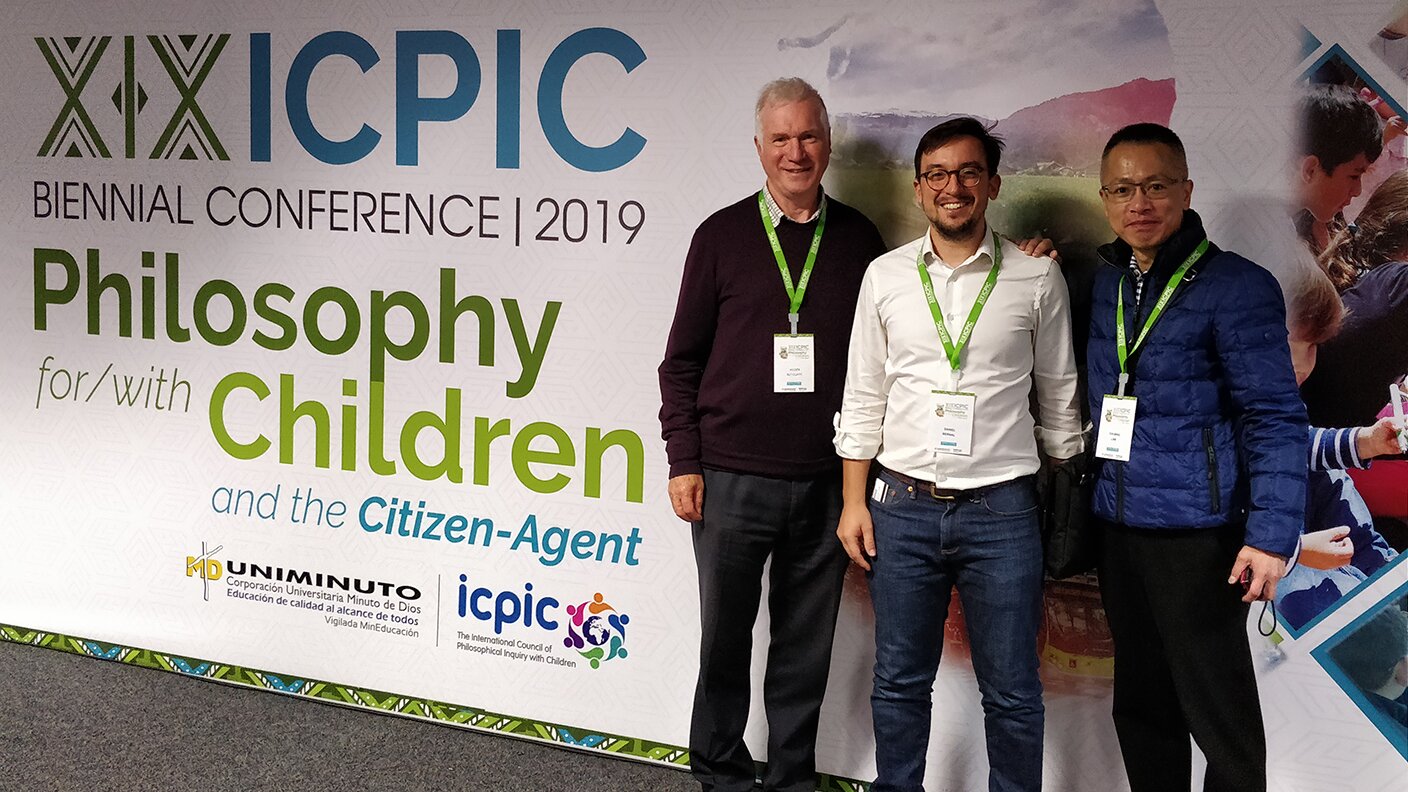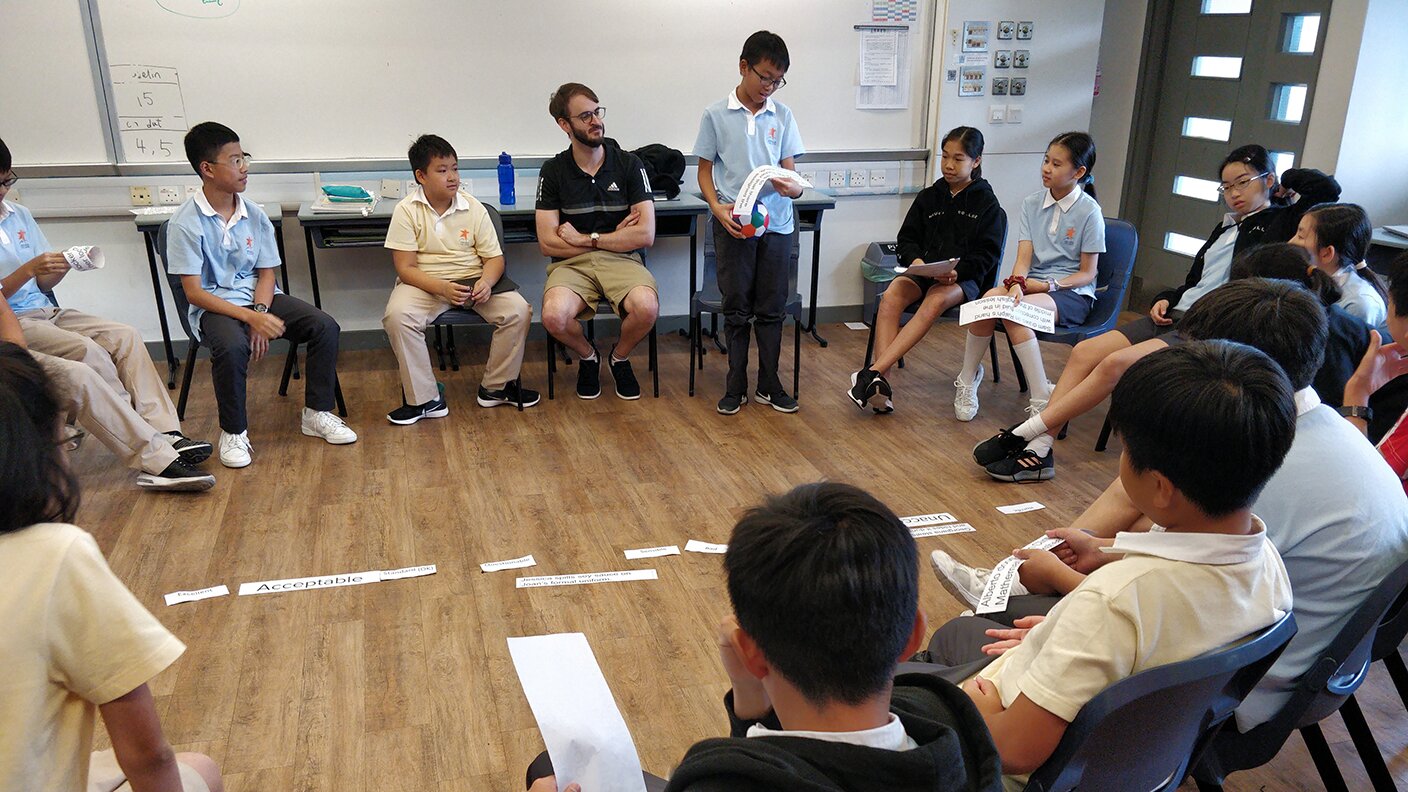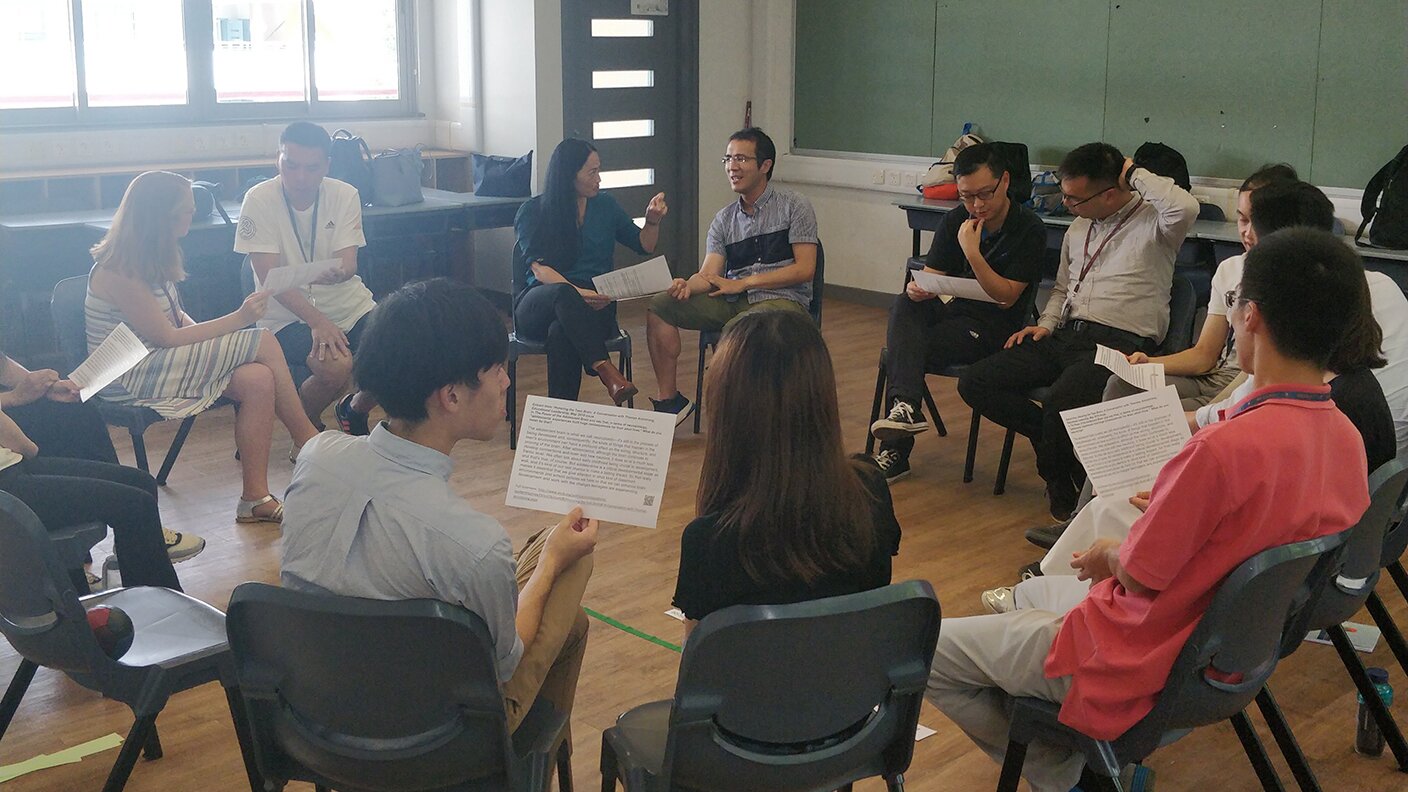My Inquiring Mind

Philosophical Inquiry (PI), also known as P4C, or Philosophy for Children, is a pedagogy that brings to the fore students’ thinking to allow them to discover new insights about the way they think and the world around them. Within this way of teaching, the teacher acts as a facilitator - teasing out students’ thoughts, and guiding them with questioning to bring more clarity in their thinking. Eventually, the students themselves become the questioners. Beyond thinking about particular subject-related topics - equations in Math, photosynthesis in Science or the life of early humans in Humanities or others - students acquire thinking tools that allow them to be more discerning thinkers who can articulate what and how they think. We do this within a community of inquiry, which offers a safe and supportive environment where students can test their ideas, and also, respectfully and in a caring manner, challenge one another.
We have adopted this pedagogy across 6 different subjects in S1 and S2: Chinese, English, Humanities, Life and Society, Science and Mathematics. Students experience around 30 PI lessons in a year and, as time progresses, their toolbox of skills expands, which they can take beyond the PI classroom. In addition, we also have a stand-alone S3 programme to consolidate the skills gained in S1-S2, as well as expose students to key philosophical areas, themes and ideas.

A standard PI lesson starts with a warm-up activity that increases engagement or primes them for the thinking tool that they will learn about later on (or both!). This is followed by a stimulus - a text, picture, video or other - that provides a problematic situation and launches students into a discussion about it. Once some thoughts have been shared and questions raised, students will engage in a concept game or activity where they use particular thinking tools. Finally, to conclude, they get to reflect on different aspects of their inquiry. Within this community, students learn to adhere to the norms of inquiry:
- We listen to one another to understand
- We build on others’ ideas
- We respect ourselves, one another and our learning environment
- There may not always be a single correct answer

To get to our current stage, we have developed the capacity of our teachers. All our staff - whether they teach PI or not - take part in a 2-day training program that leads to certification by FAPSA, the Federation of Australasian Philosophy in Schools Association. Some teachers will also move on to the advanced training. The whole-school approach enables the benefits of PI to spill over beyond the subject classrooms and into other areas of school life, such as pastoral lessons, interactions with students, and others. We are also members of ICPIC, the International Council of Philosophical Inquiry with Children. Through this work, we engage in international educational conferences, as well as educational research and other professional exchanges.
